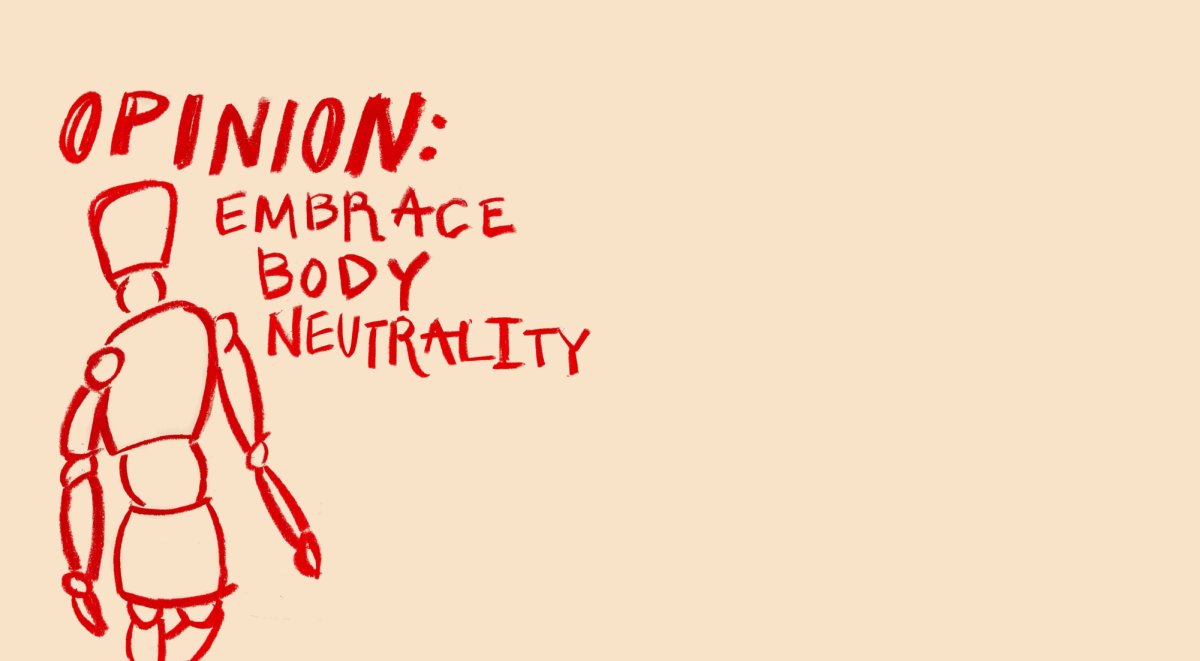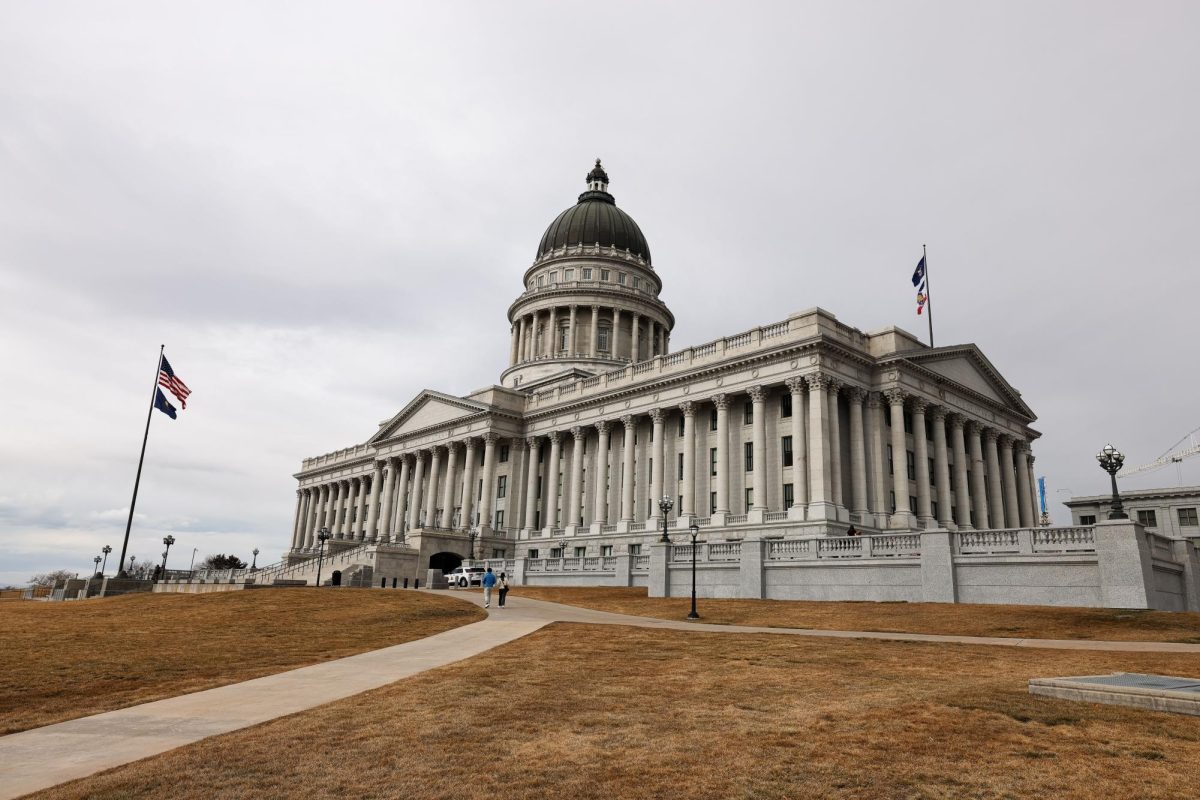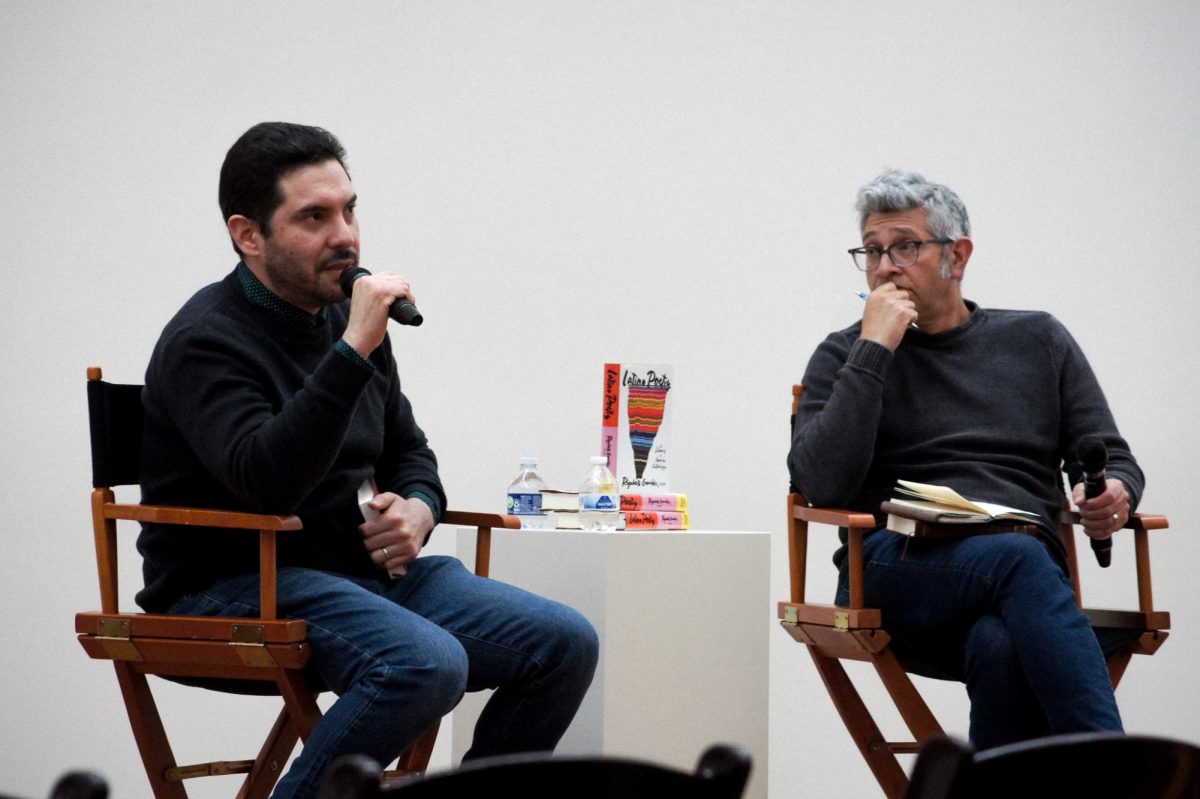Kincart: It’s Time to Discuss Anti-Fatness in Utah
April 21, 2022
Over the past few years, I’ve noticed a strong deconstruction of modesty culture within religious circles. I didn’t start to notice modesty’s impact on my body image until the end of high school. It took time for me to unpack how the ideas about modesty I grew up with led to a negative relationship with my body.
As I continued to unpack the harms of modesty culture, I noticed that anti-fat sentiment also contributes to this issue. When somebody would tell me my shorts were too short, I wondered if it was because of modesty standards or because of my weight. Did people discourage me from wearing a two-piece swimsuit because a one piece was more modest or because I needed to hide my fat body? Modesty provides grounds for policing bodies in a society that already polices fat bodies.
Fatness is stigmatized and discriminated against so much so that there’s an implicit nature for anti-fat bias in society — and the LDS church is no exception. Anti-fatness compounds the negative effects of modesty culture. We must start a dialogue about these issues because of their prevalence in the church.
Anti-fatness describes actions, thoughts and systems that oppress bodies. This idea is ingrained into society with anti-obesity campaigns, so much so that people grow up with a fear of becoming fat. Society conditions us to think that fatness needs to be eliminated. This stigma leads to hiring disparities, lower healthcare quality and social exclusion.
Fat studies are the academic field that examines these ideas. Fat studies fall within disability studies because, as disability studies scholar Anna Mollow puts it, “the modes by which fat people are oppressed are indistinguishable from ableism.”
Social media platforms like TikTok and Twitter play an important role in making the ideas of fat studies more commonplace. Television has also finally started representing these ideas by amplifying the experiences of fat women and combating dominant narratives of self-hatred.
Anti-fatness is especially concerning because of its prevalence. Anti-fat sentiment can originate in the home as parents comment on their own weight and police what their children eat. In school, anti-fat bias can lead to bullying. When fat people describe these instances, a common reaction is to blame the fat person and deem their struggles a result of their own actions. But these attitudes create a stigma that tells people they are below others, similar to that of modesty culture.
In Utah, anti-fatness compounds our already prevalent body issues. Within the LDS Church, modesty is described as a way to show respect for our bodies. However, emphasizing modesty can lead to teaching girls that they are responsible for the behaviors of others and can make puberty a shameful process for girls.
Dr. Julie Hanks is a therapist, podcast host and online influencer whose audience is women with LDS backgrounds. Her work tackles aspects of toxic modesty culture. In an interview, she elaborated on how modesty culture perpetuates harm. She said, “Hyperfocus on what someone wears creates an over-focus on physical appearance and on objectifying one’s body.” She noted the irony in this effect since modesty should prevent, not perpetuate, objectification.
Additionally, the LDS ideas of modesty I learned as a little girl emphasized that my actions determine my appearance. Ideas like “modest is hottest” or that righteousness makes one attractive teach children that their actions control their appearance. In other words, those ideas lead to the notion that being fat is unrighteous. Modesty culture in the LDS church teaches girls that their bodies are objects for other people. But when society tells us that fatness is undesirable, there is no way to achieve the perfect body. Hanks explained that the scripture “Be ye therefore perfect” is engrained in church culture and leads people to believe that “if I look perfect then I am perfect.” This definition is based on dominant anti-fat rhetoric.
Utah is known for having lots of kids and emphasizing the importance of families. We need to start an open dialogue about how anti-fatness and modesty culture work in tandem to hurt kids and their emerging self-image. As Hanks said, “Awareness is key because you can’t do anything if you don’t even see the problem.”
Hanks suggests that we stop rooting positive comments in appearance. Instead of saying “That’s cute,” we can say “You’re a leader” or “I’m glad we are friends.” She also encouraged parents to “make peace” with their own bodies so that they don’t project their fears onto children. Lastly, Hanks encouraged parents to stop policing what their children eat. “Teach healthy principles, and then let your child go make their choices,” she said
I grew up surrounded by toxic modesty culture and anti-fat bias, without ever having the language or knowledge to describe how it affected me. Thankfully, my studies allow me to unpack how these elements of our culture influenced my relationship with my body. I and many others needed an open dialogue on fatness and modesty growing up, so we should start having these conversations more frequently with future generations.













jessica mark • May 17, 2022 at 9:38 pm
Promoting unhealthy lifestyles is not the way to go. As someone who has lost a lot of weight I can tell you life is a lot tougher and not as enjoyable being heavy. We need to stop normalizing obesity. Look at pictures from the 50-60 years ago and there were few obese people.
Deni • Apr 27, 2022 at 7:01 am
I’m more worried about a culture that Embraces obesity as a norm. Look at the district in covid-19 and see how many of those people were considered overweight or obese. I am a former obese person. I was teased growing up and even chastised by my mother. I now have a normal BMI and am healthy. Fat shaming may not be good but neither is enabling a majority of our nation to be unhealthy.
Larry • Apr 21, 2022 at 11:11 am
I feel the author’s pain and hurt with her. Life is so much harder than we wish it were. But this perspective of victimhood is unhelpful.
Truth:
Obesity is unhealthy. It leads to negative health outcomes, a shorter life, and less enjoyment of the life we have. While “fat shaming” should never happen, “fat celebration” in our culture shouldn’t be normalized either. Many people struggle with weight (including me) and that’s unfortunate, but the struggle is healthy both because the goal is worthwhile and because the struggle itself is instructive.
Likewise, let’s not allow good parenting to be so easily dismissed. Loving, engaged parents are crucial. Parents teach wise principles and behaviors even when they are uncomfortable and undesired by children. Nearly every child will go through identity crises, insecurities, persecutions, and failures, and parents must shepherd children through these things, not around them. Good parents know that our goal is getting our children launched with all the tools they need to be happy and self-sufficient in the long-term. This will not happen without working through the challenges of life together.
TearDrinker • Apr 26, 2022 at 11:07 am
Slow… clap. Well done.